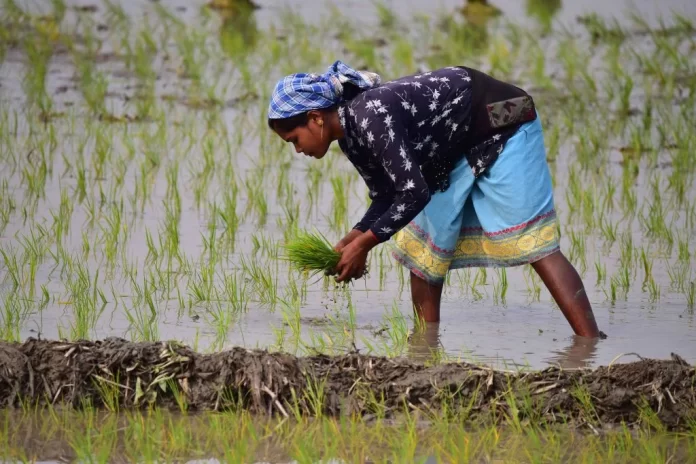In a move to protect its domestic market from the repercussions of heavy rains and soaring rice prices, India has taken a decisive step by outlawing the export of non-basmati white rice. The decision comes at a time when the nation faces looming price spikes due to a shortage of crops caused by adverse weather conditions. Over the last 12 months, rice prices have surged by more than 11%, putting immense pressure on consumers and farmers alike.
Non-basmati white rice has been a significant player in India’s rice exports, accounting for approximately a quarter of the nation’s total rice exports. This policy change will undoubtedly have far-reaching consequences for the global food market, especially as food supplies have already been strained by other geopolitical events, such as Russia’s withdrawal from a deal guaranteeing safe passage of Ukrainian grain.
Emma Wall, head of investment analysis and research at Hargreaves Lansdown, expressed her concerns about the impact on global food prices. The move may exacerbate an already challenging situation, potentially leading to further inflation and economic instability.
As the world’s largest exporter of rice, India’s decision will be closely watched by other countries in Asia and Africa, which heavily rely on Indian non-basmati rice imports. The 20% export tax imposed last year was an attempt to curb foreign sales, but farmers still found exporting more lucrative than selling domestically.

While the ban affects non-basmati white rice, Indian farmers will still be able to export other varieties, including the highly sought-after long-grain basmati rice. The government aims to ensure that farmers benefit from remunerative prices in the international market while safeguarding domestic food security.
This policy shift comes amidst India’s growing concerns about inflation and the cost of living. Extreme weather conditions have damaged crops in several northern states, causing prices of essentials such as tomatoes and onions to surge. Inflation reached 4.8% last month, exceeding expectations due to rising food costs.
As the nation prepares for national and state-level elections in the coming months, the rising cost of living has put considerable political pressure on the government. To preempt an anticipated production shortfall, experts believe the government is adopting a cautious approach, considering the potential risks of dry rain in rice-growing regions caused by the El Nino weather pattern.
The international community must closely monitor the unfolding situation in India, as any further disruptions to the rice market could have severe consequences for global food security. The ban on non-basmati white rice exports sends a clear signal that India is determined to prioritize its domestic needs amid the challenges posed by a changing climate and geopolitical dynamics.
In the face of a fragile global food supply chain, it is essential for nations to work together to address the underlying issues driving food crises worldwide. Collaborative efforts in promoting sustainable agriculture, ensuring fair trade practices, and investing in climate-resilient farming techniques will be vital to prevent further escalation of food prices and secure a stable and food-secure future for all.


